The UCL Institute of Archaeology is a long-established international leader in the discipline, collaborating with an extensive network of external partners in the UK and overseas.
Key strategic aims
The Institute's key strategic research aims are:
- to be internationally pre-eminent in the study, and comparative analysis, of world archaeology.
- to maintain and enhance its reputation for the quality and breadth of its multi-disciplinary and thematic approach to the study of the human past.
- to develop theory, method and practice in the study and management of cultural heritage in its social, political and economic contexts.
- to be at the forefront of international research in archaeological sciences.
The Institute's research covers fieldwork, laboratory analysis and conservation, artefact studies, and theoretical, synthetic, and analytical work across a range of perspectives. It has more than 60 research active staff, projects on five continents and in the Pacific, and wins regular and substantial research funding from a wide range of national and international sources.
According to the UK National Commission for UNESCO report 'Cultural Heritage Innovation' (2018) the Institute is cited as:
“...an exemplary centre for research. Encompassing archaeology, cultural heritage and museum studies, it carries out research in the archaeological sciences, heritage studies and world archaeology and hosts the AHRC Leadership Fellow for Heritage."
Research Quality
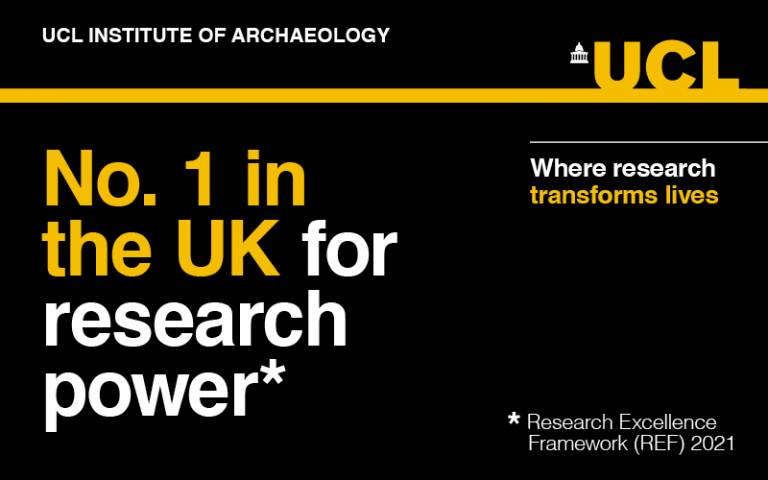
The UCL Institute of Archaeology is 1st for research power (Research Excellence Framework 2021)
In REF 2014 the Institute of Archaeology was the largest submitting unit within UK academic archaeology and we submitted the largest volume of research that was deemed to be world-leading.
In the 2008 UK Universities Research Assessment Exercise (RAE), the panel noted that, 'UCL's Institute of Archaeology is one of the very few places in the world that is actively pursuing research on a truly global scale'; that it has 'a generally outstanding research environment in which all [its] research groups participate, [contributing] to an increasingly cohesive research environment'; and that its staff and their work have 'generally excellent impact and recognition'.
Research Funding
The Institute continues to secure significant European funding and UK Research Council and charity grants. Selected research funding awards are outlined below.
Outstanding European research grant success
Current and recent EC/ERC awards
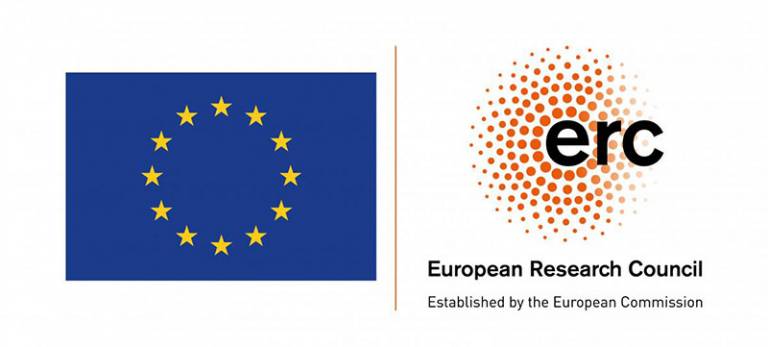
- Miljana Radivojevic has been awarded an ERC Consolidator Grant for her research project 'DREAM: Discovering the (R)Evolution of EurAsian Steppe Metallurgy: Social and environmental impact of the Bronze Age steppes metal-driven economy' (2024-2029, covered by the UKRI-EU funding guarantee).
- Rodney Harrison is part of a successful Horizon Europe collaborative project 'Petroculture’s Intersections with The Cultural Heritage sector in the context of green transitions (Horizon-CL2-2023-Heritage-01-05: cultural heritage in evolution – facing change with confidence)' (2023-2027, covered by the Innovate UK-EU funding guarantee).
- Corisande Fenwick with research collaborators in Reading, Barcelona, Granada, York, UCL, Basel, València, Murcia and INSAP (Rabat) have been successful in obtaining a European Research Council (ERC) Synergy Grant for their research project 'MEDGREENREV: Re-thinking the Green Revolution in the Medieval Western Mediterranean (6th - 16th centuries)' (2023-2029).
- Corisande Fenwick has also been successful in obtaining a European Research Council (ERC) Starting Grant for her research project 'EVERYDAYISLAM: Becoming Muslim: Cultural Change, Everyday Life and State Formation in early Islamic North Africa (600-1000)' (2021-2025).
- Stephen Shennan with Mark Thomas (UCL GEE) and research collaborators in Gothenburg, Copenhagen and Plymouth have been successful in obtaining a European Research Council (ERC) Synergy Grant for their research project 'COREX: From correlations to explanations: towards a new European prehistory' (2021-2027).
- Rhiannon Stevens was successful in obtaining a European Research Council (ERC) Consolidator Grant for her research project 'UP-NORTH: Colonisation and cultural diversification in northern Europe during the Pleistocene-Holocene transition' (2014-2020).
- Dorian Fuller was successful in obtaining a European Research Council (ERC) Advanced Investigator Grant for his research project 'COMPAG: Comparative Pathways to Agriculture' (2013-18).
- Ignacio de la Torre was successful in obtaining a European Research Council (ERC) Starting Grant for his research project 'ORACEAF: The Origins of the Acheulean in East Africa' (2012-2016).
- Marc Vander Linden was successful in obtaining a European Research Council (ERC) Starting Grant for his research project 'EUROFARM: Transmission of innovations: comparison and modelling of early farming and associated technologies in Europe' (2012-2017).
- Stephen Shennan was successful in obtaining a European Research Council (ERC) Advanced Investigator Grant for his research project 'EUROEVOL: Cultural Evolution of Neolithic Europe' (2010-2014).
Major UKRI research awards
Current and recent AHRC awards

- Andrew Bevan, Michael Charlton and Xiuzhen Li have been awarded AHRC funding for a research project, in partnership with colleagues at the colleagues at the Museum of Emperor Qin Shihuang's Mausoleum, entitled 'Qin Imperial Iron, Tomb M1 and the First Emperor’s Mausoleum: Character, Context and Consequence' (2022-2026).
- Mike Parker Pearson, in collaboration with the University of Southampton, has been awarded AHRC funding for a research project entitled 'Buried landscapes of the Avon Riverside and the Mesolithic of the Stonehenge area' (2022-2025).
- Ceri Shipton, in collaboration with the University of Durham, has been awarded AHRC funding for a research project entitled 'Digital Technologies, Acheulean Handaxes and the Social Landscapes of the Lower Palaeolithic' (2022-2025).
- Alice Stevenson has been awarded AHRC funding for a research project in partnership with the Horniman Museum entitled 'Mobilising Collections Histories for Institution Change' (2022-2025).
- Rachel King, in collaboration with the University of Oxford, has been awarded AHRC funding for a research project entitled 'Empowering heritage: understanding the cultural costs of South Africa’s energy futures' (2022-2024).
- Corisande Fenwick, in collaboration with the University of Leicester and INSAP, Rabat, has been awarded AHRC funding for a research project entitled 'OasCiv: The Making of Oasis Civilisation in the Moroccan Sahara' (2020-2025).
- Corisande Fenwick, in collaboration with the Deutsches Archäologisches Institut, has also been awarded AHRC funding for a research project entitled 'ISLAMAFR: Conquest, Ecology and Economy in Islamic North Africa: The Example of the Central Medjerda Valley' (2020-2023).
- Katie Hemer was awarded AHRC funding for 'Connected microscopy and digital technology for enhanced scientific archaeology' (2022).
- Rodney Harrison, in collaboration with Colin Sterling (University of Amsterdam and formerly UCL), was awarded AHRC follow-on-funding for the project 'Ghosts of Solid Air' (2022) which leads on from the AHRC Fellowship awarded to Colin for research on 'New Trajectories in Curatorial Experience Design' (2019-2021).
- Rodney Harrison was appointed as the AHRC Heritage Priority Area Leadership Fellow (2017-2021) and was awarded follow-on-funding for the project 'Future Policies and Politics of Heritage' (2020-2021).
- Rodney, together with UK and international colleagues, was awarded an AHRC Large Grant under the 'Care for the Future: Thinking forward through the past' theme, for the research programme 'Assembling Alternative Futures for Heritage' (2015-19). Led by colleagues at the University of Exeter, Rodney has also been awarded follow-on-funding for 'Landscape Futures and the Challenge of Change: Towards Integrated Cultural/Natural Heritage Decision Making' (2020-2022).
- David Wengrow and Brenna Hassett, with colleagues at the Natural History Museum, UK and University of Georgia, USA, were awarded AHRC funding for the project 'Radical Death and Early State Formation in the Ancient Near East' (2018-2022).
- Chiara Bonacchi, in collaboration with Durham University, was awarded AHRC funding for the project 'Iron Age and Roman Heritages: Exploring ancient identities in modern Britain' (2016-19).
- Andrew Bevan, and colleagues at the British Museum, were awarded AHRC funding for an innovative project on Crowd- and Community-fuelled Archaeological Research (2013-15) as well as follow-on-funding for a related knowledge exchange project (2015).
- Kris Lockyear was awarded an AHRC Community Heritage Development Award for his project on the late Iron Age and Roman past of Hertfordshire (2013-14).
- Thilo Rehren was awarded an AHRC Research Project Grant for collaborative research with Serbian and German partners on the Origins of Metallurgy in Eurasia (2012-2015).
- Sue Hamilton was awarded an AHRC Research Project Grant for the collaborative project 'Rapa Nui: Landscapes of Construction' (2011-2015).
Current and recent NERC awards
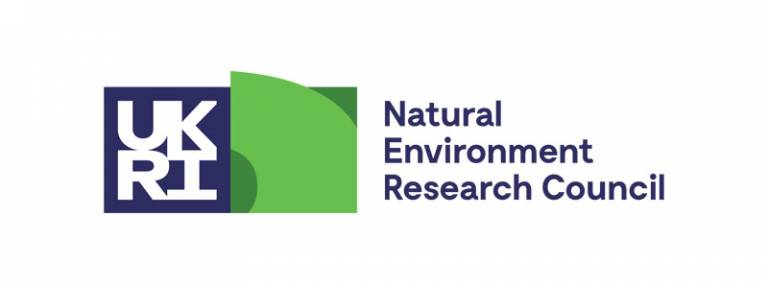
- Rhiannon Stevens, in collaboration with UCL Earth Sciences and CNRS National Center for Scientific Research, has been awarded NERC funding for the project 'Archaeo-Zn: Expanding the prospects of zinc isotopes as palaeodietary and palaeoenvironmental proxies' (2023-2024).
- Rhiannon Stevens, in collaboration with colleagues at the UK Centre for Ecology & Hydrology and the University of Leeds, has also been awarded NERC funding for the project 'Unlocking wetland ecologies and agriculture in prehistory through sulphur isotopes' (2022-2025).
- Dorian Fuller, in collaboration with colleagues at the Royal Botanic Gardens, Kew, has been awarded NERC funding for the project 'Evolutionary dynamics of vegetative agriculture in the Ethiopian Highlands: integrating archaeobotanical and genomic science' (2022-2025). Dorian previously obtained NERC funding for the research projects 'The impact of intensification and deintensification of Asian rice production: transitions between wet and dry ecologies' (2016-19), 'The evolution of rice systems from China to Southeast Asia' (2013-16) and 'The Identification of Rice in Prehistory' (2009-12).
Recent ESRC awards
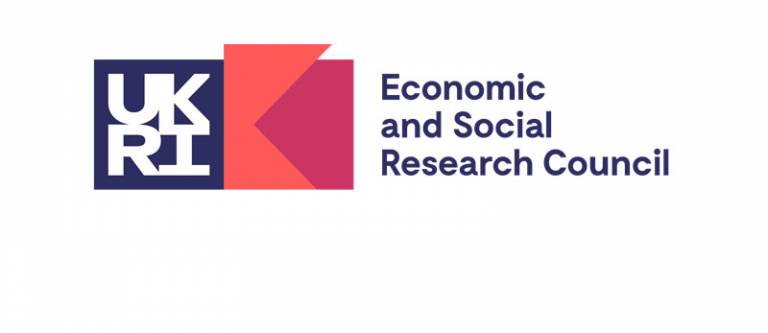
Theano Moussouri, in collaboration with the Korea Advanced Institute of Science and Technology (KAIST), was awarded ESRC funding for the project 'Towards Inclusive Digital Museum Innovation ' (2022-2023).
Significant charitable research income
Current and recent Leverhulme awards
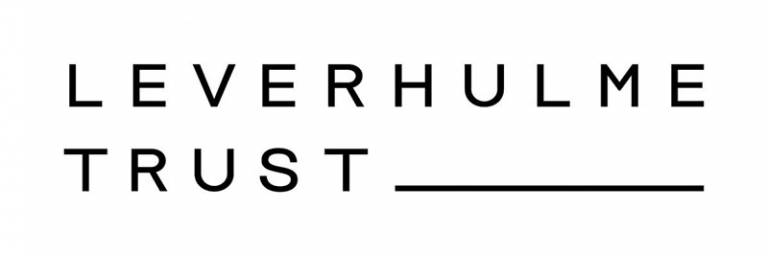
- Corisande Fenwick has been awarded a Philip Leverhulme Prize for Archaeology (2023-2026).
- Rachel King, in collaboration with the University of the Witwatersrand, has been awarded a Leverhulme Trust Research Project Grant for a project on 'Evaluating the cultural cost of development in the new South Africa' (2022-2024).
- Rhiannon Stevens, with colleagues at the University of Sussex and University of Leeds, has been awarded a Leverhulme Trust Research Project Grant for a project on 'Unlocking records of past permafrost thaw through isotopes of fossil bones' (2021-2025).
- Andrew Reynolds, with colleagues at the University of Durham, was awarded a Leverhulme Trust Research Project Grant for a project on 'Monumentality and Landscape: Linear Earthworks in Britain' (2020-2023). Andrew previously received Leverhulme Research Project Grants for 'Travel and communication in Anglo-Saxon England' (2014-17) and 'Landscapes of Governance: Assembly Sites in England, 5th-11th Centuries' (2009-2012).
- Jeremy Tanner was awarded a Leverhulme Trust Major Research Fellowship for a project on 'The Axial Age and the Institution of Art in Ancient Greece and China' (2019-2022).
- Christopher Scull received a Leverhulme Trust Research Project Grant for a project on 'Lordship and Landscape in East Anglia AD 400-800' (2017-21).
- Jose Oliver received a Leverhulme Research Project Grant for a project on 'Reflexive Archaeology in Cotua Island, Orinoco, Venezuela' (2015-2019).
- Stephen Shennan and Mike Parker Pearson received a Leverhulme Trust Research Project Grant for a project on 'Economics of Neolithic mining in NW Europe' (2015-2018).
- Stephen Shennan and Andrew Bevan received a Leverhulme Research Project Grant (led by Plymouth University) for a project on 'Changing the face of the Mediterranean: land cover and population since the advent of farming' (2015-18).
- Elizabeth Graham received a Leverhulme Trust Research Project Grant for a project exploring 'the role of past human activity in structuring modern landscapes and soils' (2013-16).
- Louise Martin, Andrew Garrard and Andrew Bevan received a Leverhulme Trust Research Project Grant for a project on 'Prehistoric hunting strategies in Jordan: reconstructing prey behaviour and ecology' (2013-16).
- James Steele, in collaboration with the University of Exeter, received a Leverhulme Trust Research Project Grant for a project on 'Learning to be Human: Skill acquisition and the development of the human brain' (2010-2013).
Current and recent British Academy awards
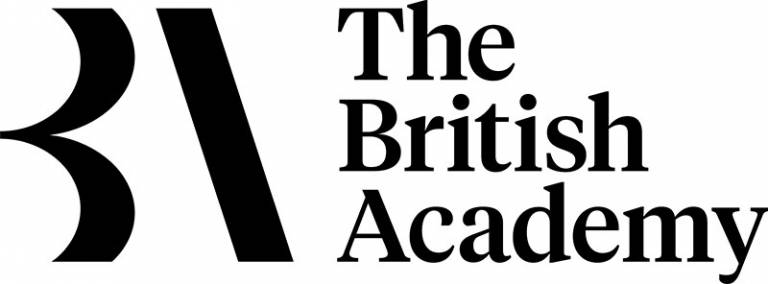
- Manuel Arroyo-Kalin supported Raoni Valle with a British Academy Visiting Fellowship at UCL for research on Rock Art Inter-Ontologies: Ethnography and Digital Safeguarding of Kumuã Knowledge on Petroglyph Sacred Places in Northwest Amazonia (2023).
- Manuel Arroyo-Kalin was awarded a BA/GCRF Sustainable Development Programme grant for research on Memorialising Ancestral Landscapes through Inter-cultural Heritage Making in the Brazilian Northwest Amazon (2018-23).
- Andrew Bevan is leading the Imperial Logistics: The Making of the Terracotta Army project which has been awarded Academy Research Project status (2012-27).
- Corisande Fenwick supported Viva Sacco with a British Academy International Fellowship at UCL for research on The Islamic Glaze Revolution: artisans and consumers in the medieval central Mediterranean (2023-26).
- Alice Stevenson was awarded a British Academy Mid-Career Fellowship for research on Exhibition Experiments in Egyptology: The role of contemporary art (2023).
- Yijie Zhuang was awarded a British Academy Mid-Career Fellowship for research on Power and historicity of water: An interdisciplinary investigation on the origins of hydraulic societies in late prehistoric China (2022-23).
- Yijie Zhuang supported Hai Zhang with a Newton Advanced Fellowship at UCL for research on Water and early enclosed settlement on the Huai floodplain, central China: Geoarchaeology of water management and landscape of the late-Neolithic site of Pingliangtai (2019-22).
Supporting early career researchers
Postdoctoral research has been significantly developed through external research funding while the Institute of Archaeology has continued to be successful in attracting both UK/EU and international PhD students. Selected grant successes supporting early career researchers include:
- AHRC Leadership Fellowship: RCUK/ UKRI Innovation Fellowship: New Trajectories in Curatorial Experience Design (Colin Sterling, 2019-2021)
- British Academy Postdoctoral Fellowship: Connected Communities: Network approaches to rock art in lowland South America (Philip Riris, 2018-2021)
- British Academy Postdoctoral Fellowship: New Insights into the Emergence of Technology: a Capuchin Stone Tool Approach (Tomos Proffitt, 2017-2020)
- H2020-MSCA-IF-2019: MegaScapes: Comparative Models of Megalithic Landscapes in Neolithic Atlantic Europe (Miguel Carrero, 2021)
- H2020-MSCA-IF-2017: EPRAC: Economy of Pre-Roman Adriatic Communities: amphora production and trade patterns in a changing world (Maja Mise, 2017-2020)
- H2020-MSCA-IF-2017: SKILL: Individual Variations and Cultural Evolution: The pottery wheel-throwing skill as a case study (Enora Gandon, 2018-2020)
- H2020-MSCA-IF-2016: ReCyPot: Revisiting an ancient craft in a contested region: The analytical paradigm of prehistoric pottery from Cyprus (Maria Dikomitou, 2018-2020)
- H2020-MSCA-IF-2016: ULP.PILAEMA: Urban Landscapes of Power in the Iberian Peninsula from Late Antiquity to the Early Middle Ages (Isabel Sanchez, 2018-2020)
- H2020-MSCA-IF-2015: PREKARN: The learning of prehistory of knapping stone (Amelia Bargallo, 2016-2018)
- H2020-MSCA-IF-2015: TRACER: Tree roots: an analytical ‘culture’ of economy and religion – case study Egypt 2050-1550BC (Gersande Eschenbrenner-Diemer, 2016-2018)
- H2020-MSCA-IF-2014: EUROLIFE: Life histories of the Neolithic Transition (Marija Edinborough, 2015-2017)
- Leverhulme Trust Early Career Fellowship: The Palaeolithic of Europe: A Demographic and Social (Pre)history (Jennifer French, 2016-2019)
- The Institute is also a partner in H2020-MSCA-ITN-2020: 'PlaCe: Training the next generation of archaeological scientists: Interdisciplinary studies of pre-modern Plasters and Ceramics from the eastern Mediterranean' (Innovative Training Network, led by The Cyprus Institute, 2021-2025).
 Close
Close

